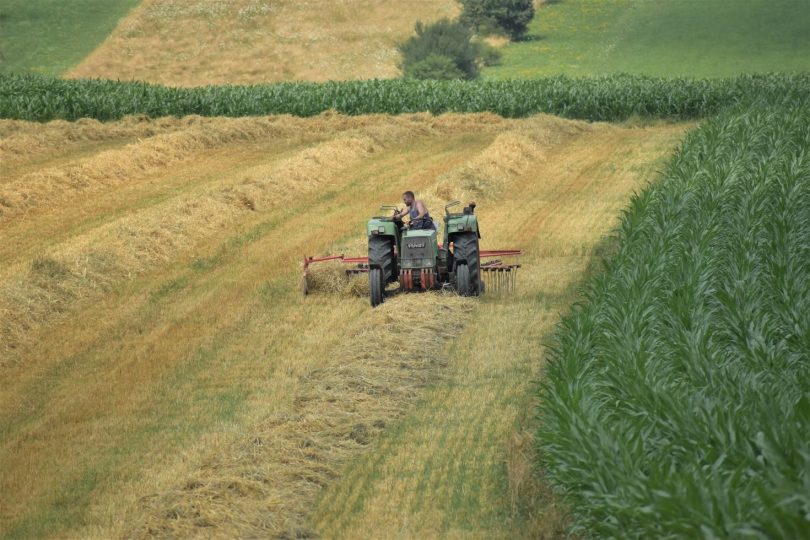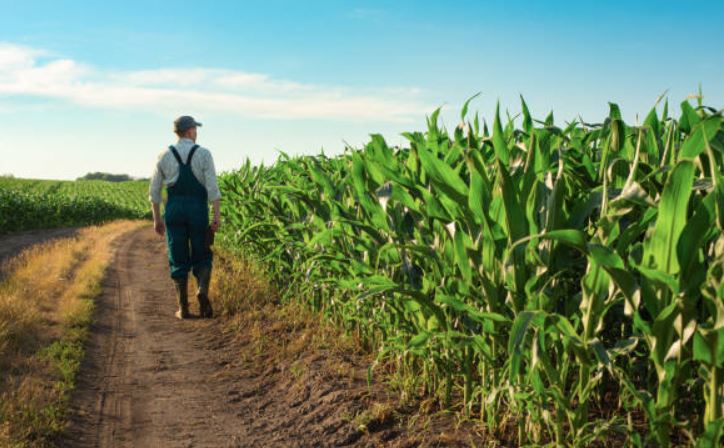Advertisements
Canada offers many farm worker positions with opportunities for growth and skill development. This guide lists the multiple farm worker positions that are currently available In Canada. Plus, you’ll learn more about the qualifications, job search process, and visa requirements.
READ ALSO: Unskilled Jobs In Canada With Visa Sponsorship Potential
What Types Of Farm Worker Positions Are Available In Canada?
Canada’s agricultural sector offers multiple farm worker positions that are essential for keeping farms running. Here are some common positions:
1. General Farm Worker
As a general farm worker, you will play a part in planting, cultivating, and harvesting crops. Your daily tasks may include feeding animals, operating farm machinery, and maintaining equipment.
This position is ideal for those who enjoy working outdoors and have a basic understanding of farming practices. You’ll need physical stamina and the ability to work long hours during peak seasons.
2. Seasonal Agricultural Worker
If you prefer a job that changes with the seasons, becoming a seasonal agricultural worker could be a great option. In this role, you assist with tasks like fruit picking or planting during busy periods.
Flexibility is key, as you may need to work weekends or evenings. Physical fitness is essential since you’ll spend long hours on your feet, often in varying weather conditions.
3. Dairy Farm Worker
For those interested in working with animals, the dairy farm worker position is a good fit. Responsibilities include milking cows, ensuring their health and nutrition, and maintaining the dairy facilities.
This role requires knowledge of dairy farming practices and animal care. If you love animals and have experience in livestock management, this could be a rewarding career.
4. Crop Farm Laborer
As a crop farm laborer, your main duties involve operating machinery such as tractors to plant and harvest crops. You may also apply fertilizers and pesticides to support healthy crop growth. Mechanical skills are important in this role, as handling different equipment safely and efficiently is part of the job.
READ ALSO: 10 Best Jobs in Canada that Don’t Require a Degree
Qualifications And Requirements For Farm Worker Positions In Canada?
Most positions don’t require formal education, but certain skills and experiences can help. While there are no strict requirements, basic farming knowledge is helpful. Experience from working on a family farm or taking agricultural courses is a plus.
1. Skills:
- Physical Stamina
- Communication Skills
- Mechanical Skills
- Attention to Detail
2. Certifications:
First aid certification and licenses for specific tasks (like pesticide application) can improve your chances.
How Can I Find Farm Worker Jobs In Canada?
Here’s a step-by-step guide to help you discover job opportunities in the agricultural sector:
Advertisements
1. Use Online Job Boards
Start your job search by exploring popular job boards like Indeed, Job Bank, and ZipRecruiter. These websites list numerous farm worker positions across Canada.
You can filter your search by location, job type, and salary range to find a role that fits your needs. Make sure to check these platforms regularly as new opportunities are often posted.
2. Check Local Farm Websites
Many farms post job openings directly on their websites. When you research farms in the provinces you’re interested in, you can visit their careers pages regularly for the latest job postings. These positions may not always be listed on bigger job boards, so this is a great way to find exclusive opportunities.
3. Network With Others In The Industry
Networking is a powerful tool for finding job opportunities. You can connect with friends or family who work in agriculture or join local agricultural groups.
A great way to expand your network is by creating a LinkedIn profile to showcase your skills and connect with industry professionals.
You could also set up coffee chats or informal meetings with people working in the field to learn about their experiences and any job openings they might know about.
READ ALSO: FREE VISA CLEANER JOBS IN CANADA
4. Attend Job Fairs And Industry Events
Agricultural job fairs are great for meeting employers in person and learning about available farm jobs. These events also offer valuable networking opportunities.
Additionally, attending industry-specific events, like conferences or agricultural expos, allows you to build relationships with professionals who may have insights into current job market trends.
5. Utilize Recruitment Agencies
Recruitment agencies can match you with farm jobs that suit your skills and preferences. Some reliable agencies that specialize in agricultural placements include:
These agencies can also provide tips on your resume and interview preparation, giving you an edge in your job search.
6. Volunteer Opportunities
Volunteering on local farms or community gardens is a great way to gain experience and make connections in the agriculture sector.
By volunteering, you’ll not only develop new skills but also meet people who might know of job openings or be able to refer you to potential employers.
Visa And Work Permit Requirements For International Farm Workers?
There are two main types of work permits you might need:
1. Labour Market Impact Assessment (LMIA) Required Permits:
For most farm jobs, your employer will need to obtain an LMIA. This document shows that hiring a foreign worker won’t negatively affect the Canadian job market. An LMIA is essential for many foreign farm workers as it proves that no Canadian workers are available for the job.
Advertisements
2. LMIA-Exempt Permits
Some farm positions may not require an LMIA if you meet specific conditions. However, even in these cases, you still need a valid job offer from a Canadian employer. However, to qualify for a Canadian work permit, you generally need to meet these requirements:
- A valid job offer from a Canadian employer.
- Proof that you will leave Canada when your work permit expires.
- No criminal record; you may need to provide a police clearance certificate.
- A medical exam might be necessary if you’re working in certain sectors, especially those involving food safety or health.
3. Required Documents
When applying for a work permit, make sure that you gather the following essential documents:
- A valid passport.
- A job offer letter from your Canadian employer.
- A copy of the LMIA, if applicable.
- Proof of your qualifications, such as diplomas or certificates.
- Medical clearance documents if required.
Advertisements






